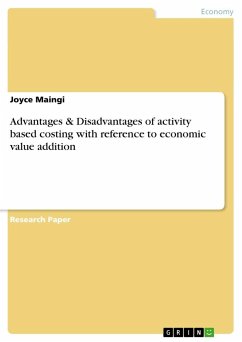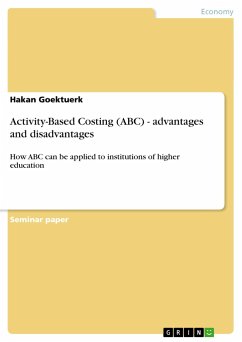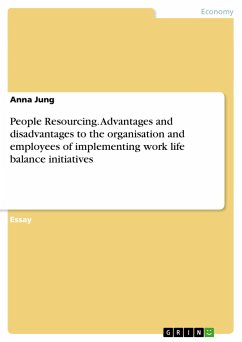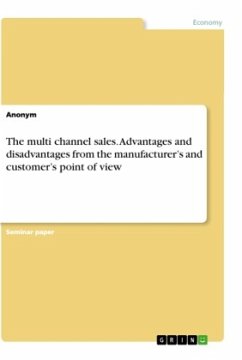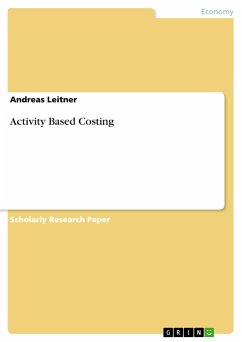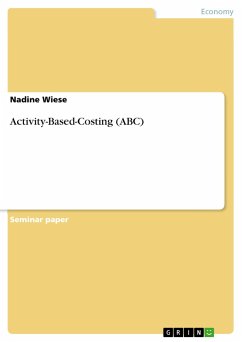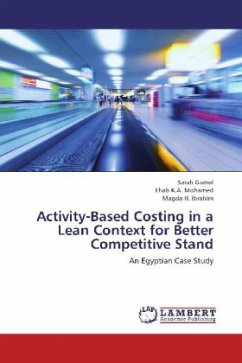Research Paper (postgraduate) from the year 2011 in the subject Business economics - Supply, Production, Logistics, grade: B, Oxford Brookes University, language: English, abstract: The paper has been formulated in order to determine the basic differences that are present between the activity based costing (ABC) and conventional methods of costing that are used around the world. A large number of companies have converted to the ABC system since as far back as 1980 as the system has shown its usability in the appropriate product mix decision, overheads management etc. (Roztocki 2000) (Reyhanoglu 2004) The benefits and drawbacks are as follows: Advantages of an Activity Based Costing System: - The first and most important advantage is the accuracy in the process of costing with regards to the product line, the end-users of the product, the stock-keeping units employed by the management and the channel and category which streamline the flow of the product from the producer to the end user. - This system better assists in the process of understanding the concept of overhead costs i.e. the allocation of common business resources as they are used by specific product lines and their relation to specific cost driver. - The system is easy to understand and interpret is it is accessible, useable and practically implement able across all norms of business set-ups. - This process uses unitary cost, or marginal cost as the computation base in contrast to the traditional cost accounting methods which employ total cost. - The system works exceptionally well will quality improvement and up gradation programs e.g. Six Sigma - This system is particularly helpful in identifying and ear-marking some of the matters business activities which are a burden or stress on the business i.e. wasteful or non value adding services.
Hinweis: Dieser Artikel kann nur an eine deutsche Lieferadresse ausgeliefert werden.
Hinweis: Dieser Artikel kann nur an eine deutsche Lieferadresse ausgeliefert werden.

